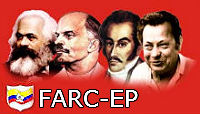This eyewitness reporting by Jed Brandt first appeared on Jed Brandt’s blog:
“You must come to Kathmandu with shroud cloth wrapped around your heads and flour in your bags. It will be our last battle. If we succeed, we survive, else it will be the end of our party.”
— General Secretary Badal of the Unified Communist Party of Nepal (Maoist)
 APRIL 21 — There are moments when Kathmandu does not feel like a city on the edge of revolution.
APRIL 21 — There are moments when Kathmandu does not feel like a city on the edge of revolution.
People go about all the normal business of life. Venders sell vegetables, nail-clippers and bootleg Bollywood from the dirt, cramping the already crowded streets. Uniformed school kids tumble out of schools with neat ties in the hot weather. Municipal police loiter at the intersections while traffic ignores them, their armed counter-parts patrol in platoons through the city with wood-stocked rifles and dust-masks as they have for years. New slogans are painted over the old, almost all in Maoist red. Daily blackouts and dry-season water shortages are the normal daily of Nepal’s primitive infrastructure, not the sign of crisis. Revolutions don’t happen outside of life, like an asteroid from space – but from right up the middle, out of the people themselves.




























